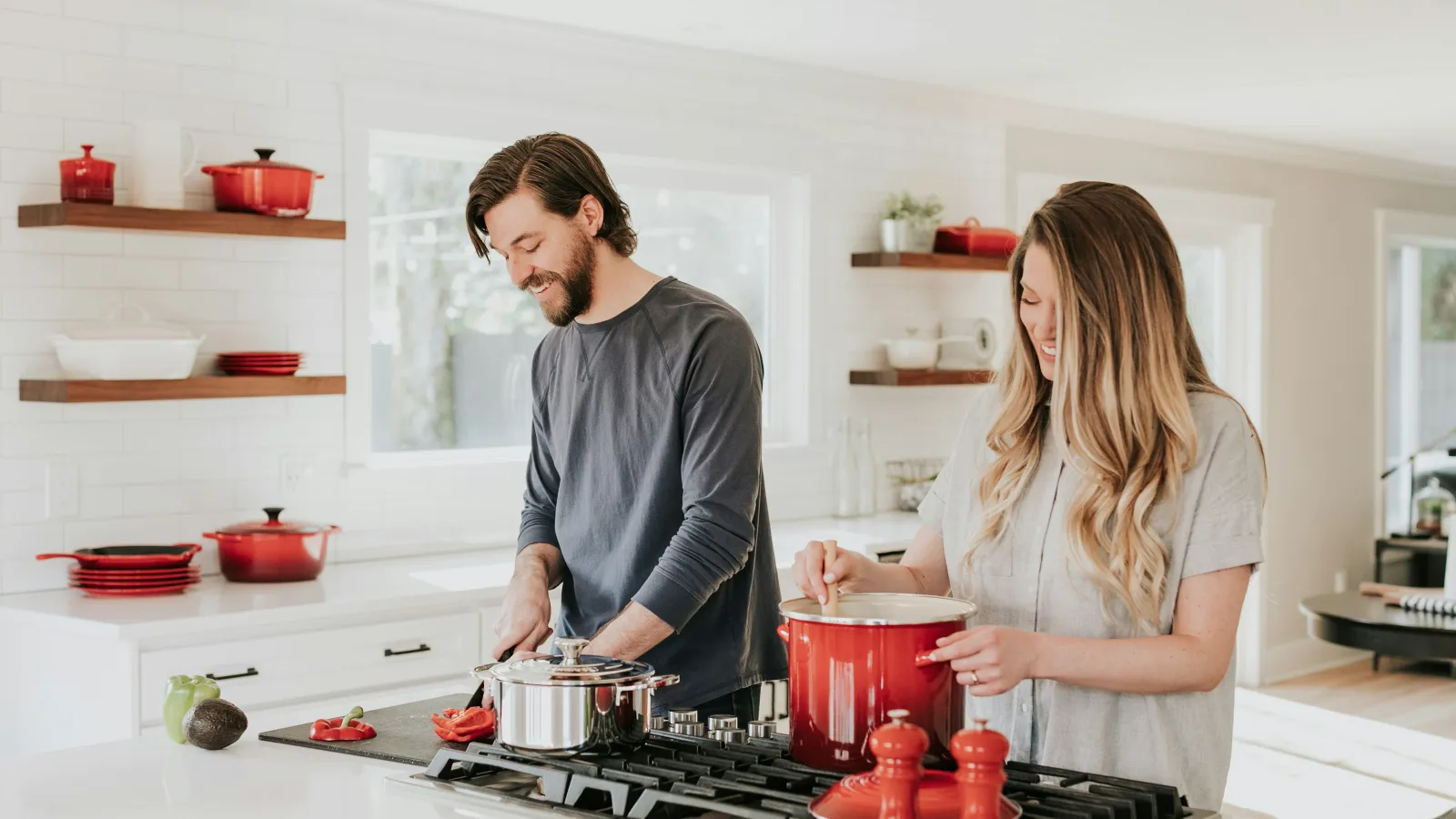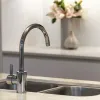Your kitchen sink is a busy place. It’s where hands get washed, dishes get rinsed, and pots and pans go to be soaked and scrubbed. If you’ve got low water pressure in the kitchen sink, it’s a big problem!
Low water pressure is a common problem in many homes, and there are a variety of potential causes. But if you’ve got low water pressure in the kitchen sink only, there are a few very specific reasons why that might be.
Let’s take a look at some of the most common reasons you might experience less-than-adequate water pressure in this incredibly important area of your home.
1. Clogged aerator or cartridge
When it’s just your kitchen sink that’s experiencing low water pressure, these are the first places we look.
A sink’s aerator is the piece that you see water flow from. It screws directly onto the faucet and helps you get an even flow every time you run water. Over time, mineral deposits can develop inside the aerator, causing a blockage. You can sometimes clean these with a toothbrush until you remove all the dentist, but it’s usually possible to just replace the aerator.
Blockages can also develop inside the cartridge, which is a device that controls the amount of water that flows from the faucet. It’s also possible to clean or replace a cartridge, but accessing them is a little tricky. You’ve got to partially disassemble the faucet to get to the cartridge.
After turning off the water supply to the sink, remove the faucet handle cap, retaining nut, and retaining clip. Then you can remove the cartridge to clean or toss it.
2. Bad pressure reducing valve
Your home likely has a pressure reducing valve, or PRV, that helps to manage the water pressure coming from the street before it arrives at your home. If this valve gets damaged or starts to wear out, you might experience low water pressure in some (or sometimes all) areas of your home.
There is a screw on top of the PRV. Turn it clockwise to increase the water pressure for your whole house. Also be sure to use a pressure gauge to ensure the pressure does not exceed 80 PSI. If this doesn’t solve the problem, you will need to call a plumber to replace the PRV.
Be advised that too much water pressure can damage appliances or cause small leaks in your home’s plumbing system! 80 PSI is the maximum safe pressure. If you’re not comfortable making adjustments to the PRV, it’s always a good idea to call an Atlanta area plumber.
3. Supply line leaks
In some cases, low water pressure at the kitchen sink is a symptom of a much larger problem: a leaky pipe.
Leaks in your home’s water supply lines can cause low water pressure, but that might be the least of your problems. Water from the leak can also cause serious damage, so it’s important to find where the pipes are leaking.
You can tell if you have a leak by turning off all water in your home and taking a picture of the water meter. Wait an hour (don’t run any water!) and check back to see if the numbers have increased. If they did, then you’ve got a leak. The best thing to do is shut off your main water supply and call a plumber.
Sometimes, your problem could be due to problems with municipal supply lines. If one of these lines breaks or is damaged, you won’t just have low water pressure at the kitchen sink – you will have it all over your home. Your neighbors will, too.
4. Shut-off valve issues
Your kitchen sink has a water shut-off valve. If it gets bumped, it might be partially closed. This can impact water pressure, so make sure the valve is all the way open.
Shut-off valves can also become dirty or spring small leaks. If you’re not sure whether your shut-off valve is in good shape, a plumber can help you determine whether to replace it.
5. Sediment buildup in your water heater
If just the hot water pressure is low in the kitchen sink, your water heater might be contributing to the problem.
Dirty tanks can impact the unit’s ability to heat, which sometimes also affects water pressure. It’s a good idea to replace the tank’s anode rod periodically. You should also drain your water heater every few years to remove sediment that has collected on the bottom over time.
Not sure how to deal with low water pressure in the kitchen sink? We can help!
The plumbing experts at PV Heating, Cooling & Plumbing can and will get to the bottom of your low water pressure issue.
If you’re not sure why you’ve got low water pressure at the kitchen sink and need to address the problem ASAP, give us a call at (470) 398-1753 today or fill out the form below.






